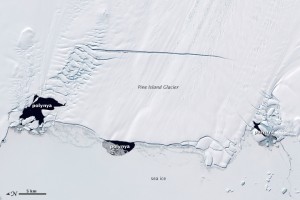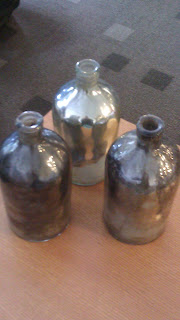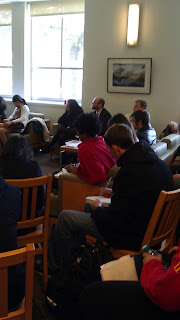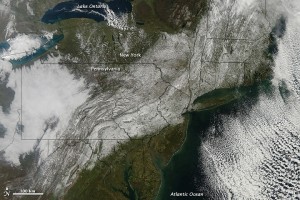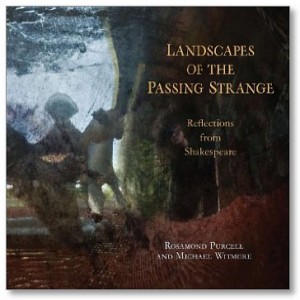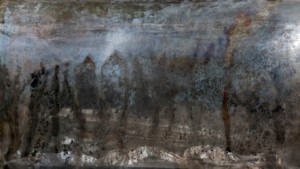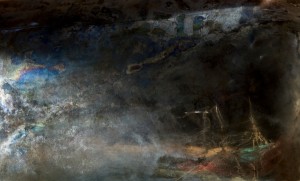I’ve been thinking about the “Shakespeare and Ecology” forum in the recent Shakespeare Studies XXXIX, and the state of play in this sub-field. The two editors, Garrett Sullivan and Julian Yates, gave the eight of us contributors free rein to engage the terms as we wished, though their introductory nods toward Latour’s “quasi-objects” and Michel Serres set a tone:
All of us…[in this post-human University] [are] engaged in an inquiry into a general physis or general theory of metaphor, clustered around a quasi-object that we are making. There will be meetings. There may be telephone calls, Skype connections, chat rooms, or whatever it takes to render this or that entity present.
The referent is tellingly obscure, like Latour’s Parliment of Things, but I take it to represent the sub-field itself, early modern eco-studies, a quasi-object inventing itself over distributed space in the reasonably pace of academic time. As usual in early modern studies, the flash points cluster around history.
Some of these essays, esp the first three by Jean Feerick, Mary Floyd-Wilson, and Vin Nardizzi, work to unpack particular historical meanings that have been obscured by later history, as in Feerick’s “human indistinction” from nature, Floyd-Wilson’s “vibrant inorganic matters,” or Nardizzi’s richly polyvalent “wood.” A shift toward “very now” comes with Joshua Calhoun’s rather brilliant opening description of the cover of his paperback edition of Shakespeare’s Sonnets. “Like the things it depicts,” Calhoun writes, “the cover must disintegrate” (64). It’s a clever hook, connecting the material form in which we often read and teach these poems with their own poetic obsessions with time and decay. Does that move automatically make this essay presentist? Or — as I’d prefer — does Calhoun’s brief & stylish collapsing of time past and time present in readerly experience enable him to side-step the anachronism police? “Plants still provide us with paper,” he writes a bit later, “and by extension, with Shakespeare.”
Sharon O’Dair, a champion of the present, playfully intersperses famous passages with textbook definitions of “ecology” and descriptions of the BP oil spill on coastal Alabama. At the end, though, she flags a present-tense imperative:
For this reason I again urge my historicist early modern colleagues to engage this ecological and political movement — fully. …[T]he present is too important to be left to theorists. The present is too important to ‘not act’ or do nothing. We must act differently.
I sympathize with Sharon’s voice here, and I too am concerned about the relationship between early modern ecostudies and the historicist mainstream. It also strikes me that, revolving around the pivot-paragraph in Calhoun, the remaining essays in the Forum lead with the present tense, as it were. Evelyn Tribble and John Sutton extend their very convincing (to me, anyway) argument about the value of distributed cognition for thinking about theater and perhaps all public forms of art. Bruce Smith’s stylish presentation of a continuum of ecological studies from Simon Estok’s “rigorously materialist” to Tim Morton’s “rigorously perceptualist” plays with Shakespeare’s texts as formal linguistic structures, ahistorical to a certain extent — and I do something fairly similar, I think, in my reading of blue and green ecological counter-currents swimming through Macbeth.
So: should we tabulate the eight papers into two halves? Three historicist analyses with their ears tuned by contemporary eco-concerns (Feerick, Floyd-Wilson, Nardizzi), plus Calhoun’s reading of the sonnets that really belongs in this group, even though its present-tense opening pulls in the opposite direction. Then four essays that are freeer with their anachronism: O’Dair, me, Tribble and Sutton, Smith. A reasonably neat split.
That’s a fairly conventional way to parse early modern studies these days, and to some extent it’s accurate — or somewhat accurate, in the way of conventional wisdom. But the most interesting face of eco-crit, it seems to me, is its potential to span the theory-history fissure.
Do these essays show how to do that spanning? I’m not sure; the two halves of the Forum are somewhat distinct. Perhaps Calhoun and Nardizzi come closest, though to be fair both Tribble/Sutton and Smith discuss methodologies more than engaging early modern sources. Am I implicitly griping here about what I don’t do in my own short essay, i.e., push the blue and green deeper into 17c context? I always want to be historicizing the ocean, rather than accepting Byronic visions of the eternal blue.
What I’d like for early modern eco-studies is a meaningful way to be both historicist and ecological, to explore the early modern and pre-modern roots of the human-nature dyad while speaking to our present experience of living within a disorderly ecosphere. Making sense and pleasure out of disorder and discomfort is something that literature does well. I also think making the historical past and experiential present communicate is essentially a literary project, one that’s worth tacking head-on. I suppose that’s Sharon’s point too: we don’t want historicism and presentisim (or post-humanism, Latourian-ism, or whatever) to separate into private languages. It’s more fun, and more productive, to wrestle these things together in public.
In the last paragraph of their introduction, Sullivan and Yates suggest that the essays in the Forum perform a “reprogramming of our reading practices and protocols for configuring textual evidence” while also, perhaps, failing to “escape the limits of…the ecological sublime.” That seems right to me: we’re trying to do something new, but we’re also working, by necessity, with old materials, and we don’t want to lose touch with either side. “What will it have meant to posit this conjunction?” the editors ask, pointing to the troublesome “and” between Shakespeare and ecology. It’s a good question.

